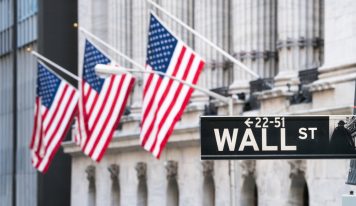In my discussions with the people who run tech companies, for the most part they tell me they are lowering their guidance because people tell them they should. Yesterday in fact in a podcast interview, Joel Hackney, President of the Enterprise Solutions Group at Nortel mentioned they have lowered earnings forecasts but this move seems to have more to do with what the company is hearing than what they think their prospects might be.
Having said that, it is tough to be optimistic about your future prospects if the media is beating a recession drum 24×7.
Don’t get me wrong… I realize housing in many parts of the country is in a depression.
The question is, without all this constant talk of a recession, which many argue we are not in, would the rest of the economy (non housing-related companies) even be slowing?
Frost & Sullivan is a well-respected analyst and they just put out a release on the economy which goes into a bit more detail on the above topics.
I thought it worth sharing:
Increasing pessimism about the U.S. economy is causing many CEOs to preemptively lower growth goals expectations and plan conservatively for 2008 – but is this a smart strategy? With phrases such as “darkening outlook”, “market freeze”, and “economic meltdown” dominating the financial headlines, companies are electing to implement a cautious approach.
“CEOs tightening their economic belt and implementing cautionary growth strategies, and consumers spending more conservatively will fundamentally cause any real slowdown or recession we may experience,” states Frost & Sullivan Chairman David Frigstad. “The problem is a spiral effect driven by fear. A fear-based climate is causing consumers to lose confidence and cut back on their spending, banks will tighten their credit policies and turn a false perception of doom and gloom into reality, thus driving the economy into recession.”
While this response is driven by the perceived fear, it is in fact, out of proportion with the actual condition of the U.S. economy. “There are no economic measurements that support the fact that we are going into a recession. The fundamentals are strong for continued growth and the overall global economy is very healthy,” continues Frigstad.
The global economy in general is being driven by several huge factors which significantly outweigh any blip in the U.S. mortgage market. Global investment in commercial real estate increased from $665 billion in 2006 to $930 billion in 2007, and foreign buyers will likely look to the U.S. for properties with long-term value. Furthermore, the current exchange rate of $1.51 per Euro expects to support the growth of exports by offering strong opportunities for the U.S. economy.
A recession is not inevitable, but it may be a self-fulfilling prophecy. Frost & Sullivan research reveals the current concern over the “crisis” in the U.S. subprime market is overstated and reflects the risky lending practices of banks. The subprime mortgage market accounts for $1.3 trillion of the total U.S. economy, of that only 1.5% is actually at risk. Considering the default rate of 1.5% is the same today as it was in 2004, it seems foolhardy to tie this amount to a nationwide economic downturn.
Growth opportunities reside in uncertainty and this should not change in the time ahead. “Overall, our research on technology, markets, and economics clearly shows that the global economy remains strong and fueled by technology-driven productivity improvements, enhanced logistics, global democratization trends, better trade infrastructure, and a highly dynamic, commercially-focused Asian business community,” concludes Frigstad.





